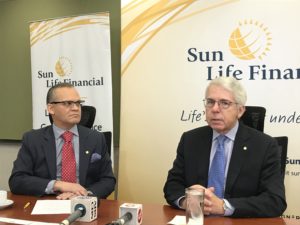RC Cola bottler Macay Holdings Inc. has earmarked P1.2 billion for this year’s business expansion, including a potential venture into “healthier” beverage options and counter the increase in excise tax on sugar-sweetened drinks.
“The government, by imposing the excise tax, has sent a message that we need to offer healthier products to our consumers, so we’re going to respond to that,” Macay president Antonio Panajon said in an interview after the company’s stockholders meeting yesterday.
Under the Tax Reform for Acceleration and Inclusion (TRAIN) law that took effect this year, an excise rate of P6 per liter is taxed on drinks containing caloric or non-caloric sweetener, while P12 per liter is taxed on drinks containing high-fructose corn syrup. Milk and instant coffee are exempted.
Macay Holdings experienced a 61-percent year-on-year decrease in first quarter net income from last year. Net profit dropped to P121 million in the first three months of this year.
But the company was expecting some improvement in the second quarter, Panajon said.
“In some markets, it took about two to three years before it can recover. We’re hoping it’s not going to take us that long,” Panajon said.
Macay is the owner of beverage company ARC Refreshments Corporation (ARC), the manufacturer and distributor of carbonated drink brands RC Cola and Fruit Soda Orange, among others, with eleven bottling plants across the country.
Macay was also looking to cater to the growing “millennial market,” which has an “unpredictable” and “exciting” taste, Panajon said.
“Now the millennials are more adventurous, and they’re willing to spend, so this is a challenge to marketers,” Panajon said.
In 2017, the company has allotted the same amount of P1.2 billion from internally-generated funds for expansion, including plant construction. This was also spent on marketing and selling efforts through increased advertising and promotional activities. —JEUEL BARROSO


